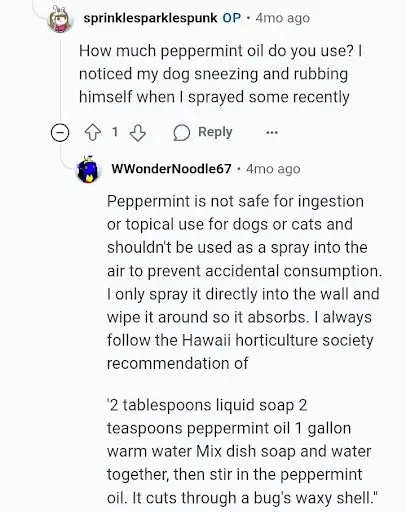Simple Tips to Prevent a Cockroach Infestation in Your Home
A cockroach infestation is not just annoying; it’s a full-blown health hazard. You’ll spot one in your kitchen today, and the next thing you know, they’ve taken over your skirting boards, food storage, and even your electrical appliances.
Whether it’s German cockroaches nesting behind your fridge or American cockroaches crawling in from the drains, they thrive where there’s warmth, moisture, and easy access to food.
Allstate Pest Control, in this article, shows you how to avoid cockroach infestation at home without turning your space into a chemistry lab.
What questions will this article answer?
Why you need to avoid a cockroach outbreak
Cockroaches can transmit a range of nasty diseases and germs from one place to another.
Problems caused by cockroaches
They spread diseases, damage furniture and leave behind droppings and shed skin which can trigger allergic reactions.
How to identify a cockroach outbreak
You may notice cockroaches during the daytime, droppings, shed skin and a musty odour.
How to prevent a cockroach infestation
We recommend sealing entry points, reducing available food sources and hiding spots.
Professional cockroach treatment
Our technicians will use cockroach insecticide sprays, gel baits and control dust. We also offer a cost-effective pest management program for commercial businesses.
Choose Allstate for fast and effective cockroach extermination
At Allstate, our technicians are available 24/7 to all suburbs of Adelaide for safe and long lasting cockroach treatments.
Why You Need to Avoid a Cockroach Infestation
Although they don’t bite humans, cockroaches are able to transmit a range of nasty diseases and germs from one place to another.
This is because they live and feed in sewers, rubbish bins and other unsanitary places which are brimming with bacteria, viruses and parasites. These harmful organisms can accumulate and then be passed on through cockroach droppings and saliva. Some can even hitchhike to other places by latching onto the cockroach’s legs.
If you happen to ingest food or drink that has been in contact with a cockroach, it could well be contaminated and cause potentially serious illness. This is particularly problematic not just for homes, but also for hospitality businesses.
Get fast cockroach treatment today, speak to our expert team
or
Problems Caused By Infestation of Cockroaches
Skilled at surviving in different environments, cockroaches can be just as comfortable living in your rubbish bin as they are in your pantry or bathroom. However, this means that they can contaminate once-sterile surfaces and places and cause a wide range of illnesses and diseases. This includes diarrhoea, food poisoning, typhoid fever, cholera, dysentery, hepatitis A and leprosy.
With sharp teeth and strong jaws, they can chew through plastic, fabric, furniture, books and leather goods.
Cockroach droppings also contain pheromones which attract more cockroaches to the same area.
Some people may even experience allergic reactions to cockroach droppings, shed skins, and saliva. Those with asthma may need to take extra precautions.
How to Identify a Cockroach Infestation
While it’s common to notice an odd cockroach here and there, this can also be a sign that there are many more hiding away quietly. Here’s how to tell if you have a full-blown infestation on your hands:
You notice cockroaches in the daytime
As nocturnal creatures, cockroaches usually only prefer to roam around at night. However, if you notice them at other times, this could indicate that you have an outbreak.
Cockroach droppings
If you’re consistently seeing tiny black granules that resemble coffee grounds scattered around, these could be cockroach droppings.
A musty odour
Cockroach droppings leave behind an unpleasant smell. It’s often strongest in infested areas, such as cupboards, skirting boards, or under sinks. If your home starts to smell stale for no clear reason, suspect cockroaches.
Egg capsules
While they vary in shape between species, they are usually tan, black or brown coloured and shaped like a pill.
Skin shedding
As cockroaches grow, they will shed their outer skin and leave it behind. In the event of an outbreak, this would be a common sighting.
How to prevent a cockroach infestation
We recommend keeping cockroaches out of your home or business in the first place, as well as reducing available food sources and hiding spots.
Cockroaches will eat almost anything, including meat and vegetables, sweet or greasy foods, paper, leather and fabric. This means that it’s essential to store all food tightly and keep your kitchen and dining areas clean. Wipe away spills and grease, wash cutlery and keep sinks and drains clear. Practice good hygiene when handling food—clean tables and benches as well after use. Don’t forget to tightly seal and cover rubbish and discard pet waste.
Regular building maintenance also plays a key role in keeping cockroaches away. Being small and flat, they can crawl through small gaps to gain entry, so you’ll need to carefully check for all potential entry points and seal them with gap filler or expanding foam.
Leaking pipes and drains create a damp environment for cockroaches to thrive, so we suggest checking for leaks and repairing them as quickly as possible.
Manage cockroaches for good, speak to an expert today
or
Professional cockroach treatment
In the event of an outbreak, it’s best to call in the experts to get the problem under control fast, and to stop it from happening again.
We use the following methods to prevente a cockroach infestation.
Cockroach insecticide
We apply this to the perimeters of the building to stop cockroaches from entering inside, as well as to established nesting areas.
Cockroach control dust
For access to hard-to-reach places, such as voids, cracks and crevices, we sprinkle tiny insecticide granules to encourage cockroaches out of the hiding spots. You may initially notice an increase in the number of cockroaches as a result.
Gel baits
Bait stations containing an insecticide gel can be strategically positioned at well-known feeding sites.
Pest Management Programs for businesses
To help our commercial and industrial clients to prevent cockroach outbreaks and meet their health and safety requirements, we offer a cost-effective integrated pest management service. This includes routine pest inspections, as well as an online reporting portal to access reports, records and trends at any time.
Speak to one of our friendly customer service consultants to learn more about our pest management services for businesses.
Choose Allstate for fast and effective cockroach extermination
At Allstate, we understand that the last thing anyone needs is an outbreak of cockroaches in your home or business while you’ve been away for holidays. But thankfully, with the right treatment, you can have the problem under control quickly.
Since 1986, we have been providing pest control services to all suburbs of Adelaide. With a 24/7 availability, our highly trained team can provide advice for urgent enquiries in residential, commercial and industrial settings. Rest assured that our treatments are non-toxic to children, pets and the environment.
All our services come with competitive warranties and a 100% satisfaction guarantee. We can even provide finance options, allowing you to access our effective cockroach management treatments easily and without delay.
Frequently Asked Questions
How do I keep cockroaches away from my room, especially at night?
To keep cockroaches away from your room, avoid eating there entirely. Crumbs, leftover food, and pet food bowls are enough to attract them. Check for cracks near skirting boards and entry points. Cockroach control starts with sealing off where they sneak in and removing their food sources completely.
What smell keeps cockroaches away without using chemicals?
Cockroaches generally dislike strong scents. Essential oils like peppermint, tea tree, or eucalyptus can repel them when used correctly. Mix with water and spray around baseboards, skirting boards, and moist areas like behind the toilet. While it’s not a cure-all, it helps in preventing cockroaches from claiming territory.
Why is squashing a cockroach not the best idea?
Squashing it can spread harmful bacteria from their body onto your surfaces. It’s always better to trap it, seal it in a bag, and toss it out. Or better yet, call a professional cockroach control service to stop the infestation at its source.
While it’s a common belief, squashing a cockroach, especially a female German cockroach (Blattella germanica), won’t release an egg case or unleash a swarm of baby roaches. That myth’s long been busted.
What are the first signs of a cockroach problem in the house?
Seeing dead cockroaches, egg cases, or even spotting them during the day signals a full-blown infestation. Check under sinks, near litter trays, and in warm crawl spaces. The more pungent the smell and the more droppings you see near food sources, the bigger the cockroach problem. Act early before they multiply.
How can I permanently manage roaches in the kitchen?
It starts with a habit and a regular treatment plan. Ensure you make a weekly (or biweekly) deep clean of all food preparation areas: under the toaster, behind the fridge, and inside drawers. Remove cardboard boxes and any unnecessary containers; they give German cockroaches a perfect hiding spot. Store food in airtight containers, and never leave water bowls or pet food out overnight.
For stubborn cockroach infestations or recurring issues, Allstate Pest Control has effective cockroach control solutions for kitchens and food areas. Call us at 08 8371 1277
Our expert team is ready to help you now
or


